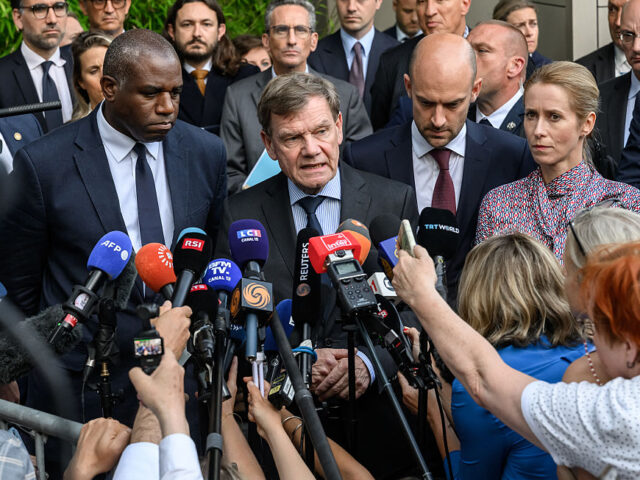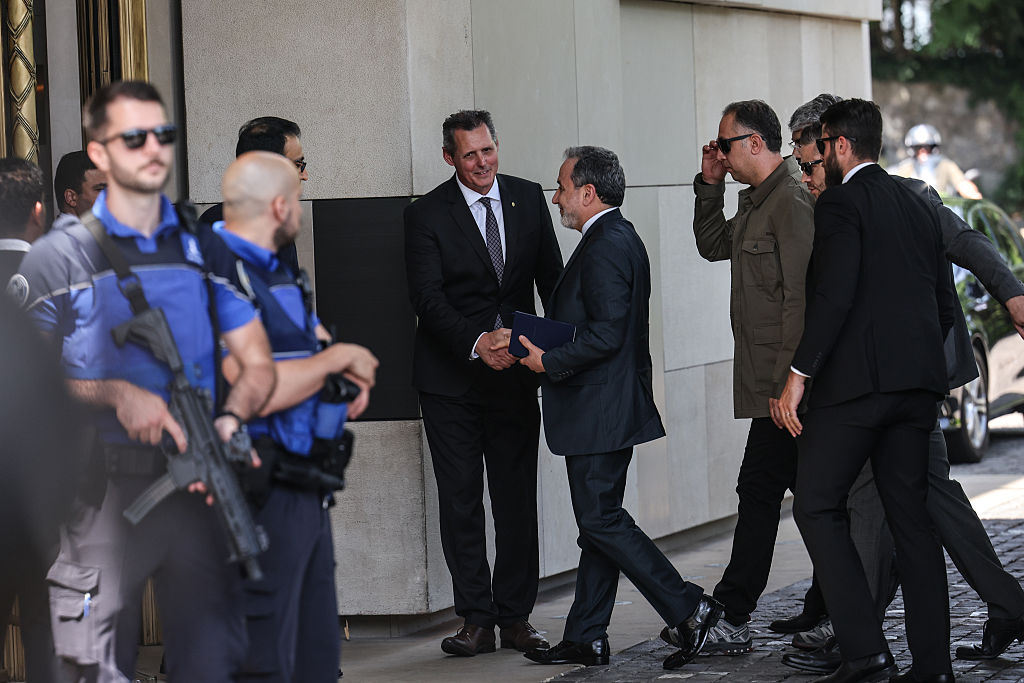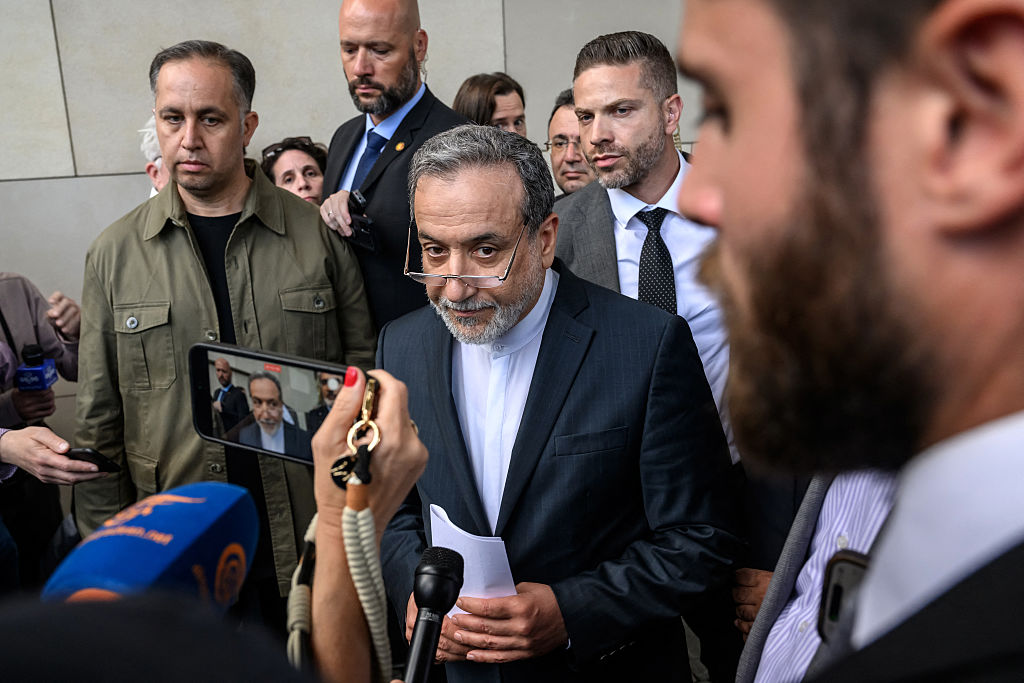Iran Peace Talks Last Over Four Hours, Euro Ministers Urge Tehran to Talk to Washington

The foreign ministers of the United Kingdom, France, and Germany met with their Iranian counterpart on Friday and after talks ended said discussions had been “serious” and that they’d urged Tehran to agree to talk to the Americans next.
Initial peace talks between London, Paris, Berlin, and Tehran to open channels for negotiating an end to the Iran-Israel war lasted for around four and a half hours on Friday. Britain’s David Lammy, France’s Jean-Noël Barrot, and Germany’s Johann Wadephul met with Iran’s Abbas Araghchi in Geneva, Switzerland for face-to-face talks they said after the meeting broke should lead to further discussions.
United Kingdom Foreign Minister David Lammy said he had been clear in talks that “Iran cannot have a nuclear weapon” and that he’d urged Iran to “continue their talks with the United States”. Before the talks, Lammy had said there is a “two week window” to achieve peace, bringing the UK into line with President Trump who said the same today.
Jean-Noël Barrot of France said he’d told Iran that “there is no solution through military means” and they should enter into a negotiated settlement of the “crisis situation”. He said “Iran must open itself to discussion, including with the United States, to find a negotiated solution to this crisis” while recalling the basics of France’s proposal for peace, which include Iran ending its support for terrorist proxy groups around the world, releasing Western hostages from its prisons, and the opacity of Iran’s nuclear programme.

GENEVA, SWITZERLAND – JUNE 20: Iran’s Foreign Minister Abbas Araghchi (C) arrives at the Intercontinental Hotel for a meeting with the E3 group of European ministers on June 20, 2025 in Geneva, Switzerland. (Photo by Sedat Suna/Getty Images)

Iran’s Foreign Minister Abbas Araghchi leaves after a meeting on Tehran’s nuclear programme, with Germany’s Foreign Minister, France’s Minister for Europe and Foreign Affairs, European Union High Representative for Foreign Affairs and Security Policy and Britain’s Foreign Secretary at the Intercontinental Hotel in Geneva on June 20, 2025, aside of a meeting of European Foreign Ministers, as European countries call for de-escalation of tensions after Israeli bombings aimed at breaking Iranian nuclear program. (Photo by FABRICE COFFRINI/AFP via Getty Images)
Macron’s plan also looks to resolve issues around Iran’s support of Russia’s war machine in Ukraine through drone systems, and Iran’s ballistic missile programme.
German Foreign Minister Johann Wadephul called Friday’s talks “serious” and, like the others, said they’d prompted Iran to speak to Washington.
This urging is no inconsequential matter: Iran has refused calls from Washington so far, including from Trump envoy Steve Witkoff because they blame the United States for allowing Israel’s strikes to happen.
Indeed, before talks began this morning Iranian state media ran with stories proclaiming there could be no dialogue with the United States whatsoever as long as fighting continues, given their view that America is “complicit” in it. Araghchi was reported to have said: “We have nothing to talk with the United States as a partner in this crime”.
On Thursday, U.S. President Donald Trump stayed his hand on involvement in the Israel-Iran war, saying he would delay his decision to some time in the next two weeks. His spokesman Karoline Leavitt said for the U.S., a deal would need guarantees on uranium enrichment and nuclear weapons, which the U.S. government says Iran had been “a couple of weeks away” from completing.
This story is developing, more follows